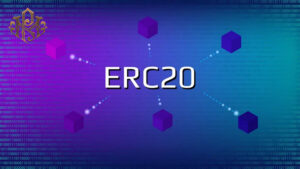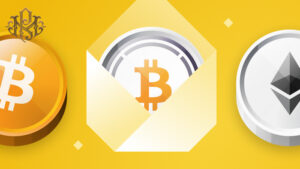
Close



Reviewing the concept of token standards: In the broad realm of digital currencies and blockchain technology, tokens represent a digital asset or unit of value that resides in a blockchain. Token standards define a set of rules and protocols that govern the creation, structure, and operation of these tokens. These standards ensure interoperability, compatibility and ease of use across various blockchain platforms and applications. Among the multitude of token standards, some of the most common and influential ones are ERC-20, ERC-721, ERC-1155, BEP-20, and TRC-20.

ERC-20, or Ethereum Request for Comment 20, is one of the most common token standards built on the Ethereum blockchain. It defines a set of rules and functions that enable the creation of fungible tokens. Fungible tokens are fungible and indistinguishable from each other, allowing seamless exchange and uniformity in value. ERC-20 tokens are widely used for initial coin offerings (ICOs), token sales, and as utility tokens in decentralized applications (dApps) and crypto exchanges.
Unlike ERC-20, ERC-721 tokens are non-fungible, meaning each token is unique and distinct, often representing digital collections, artwork, real estate, or other unique assets. The ERC-721 standard, also developed on Ethereum, facilitates the creation and ownership of NFTs and provides a mechanism for provenance, ownership verification and scarcity in the digital realm. These tokens have gained attention due to their use in digital art, gaming and tokenization of unique assets.
ERC-1155 is a hybrid token standard that allows for the creation of both fungible and non-fungible tokens in a smart contract. Developed to optimize efficiency and reduce network congestion, ERC-1155 enables the creation of multiple token types in a single contract, offering developers flexibility and affordability. This standard has found applications in gaming, where both exchangeable in-game currencies and unique items can exist within a single framework.
BEP-20 is a native token standard of the Binance smart chain modeled after Ethereum’s ERC-20 standard. It is designed to create tokens on the Binance Smart Chain, which is compatible with Ethereum-based assets and offers users an alternative platform for deploying decentralized applications and tokens.
Similarly, TRC-20 is the token standard on the TRON blockchain that facilitates the creation of tokens compatible with the TRON network. TRC-20 tokens serve a variety of purposes, including utility tokens, stablecoins, and tokens that represent assets in the TRON ecosystem.

Token standards play a fundamental role in shaping the functionality, use cases, and interoperability of tokens in blockchain ecosystems. While ERC-20, ERC-721, ERC-1155, BEP-20, and TRC-20 represent a diverse subset of token standards, they significantly impact the expansion of decentralized applications, digital asset representations, and tokens. have affected the actual construction. Global Assets As blockchain technology continues to evolve, token standards remain critical in defining the functions and uses of digital assets across multiple platforms, paving the way for innovative applications and broader adoption in the decentralized landscape.